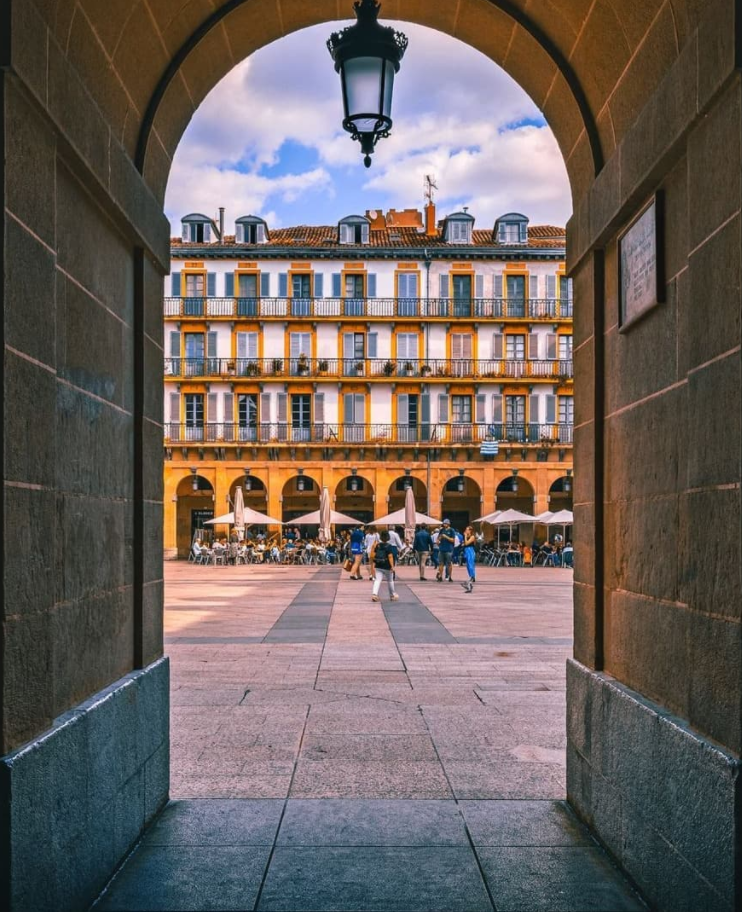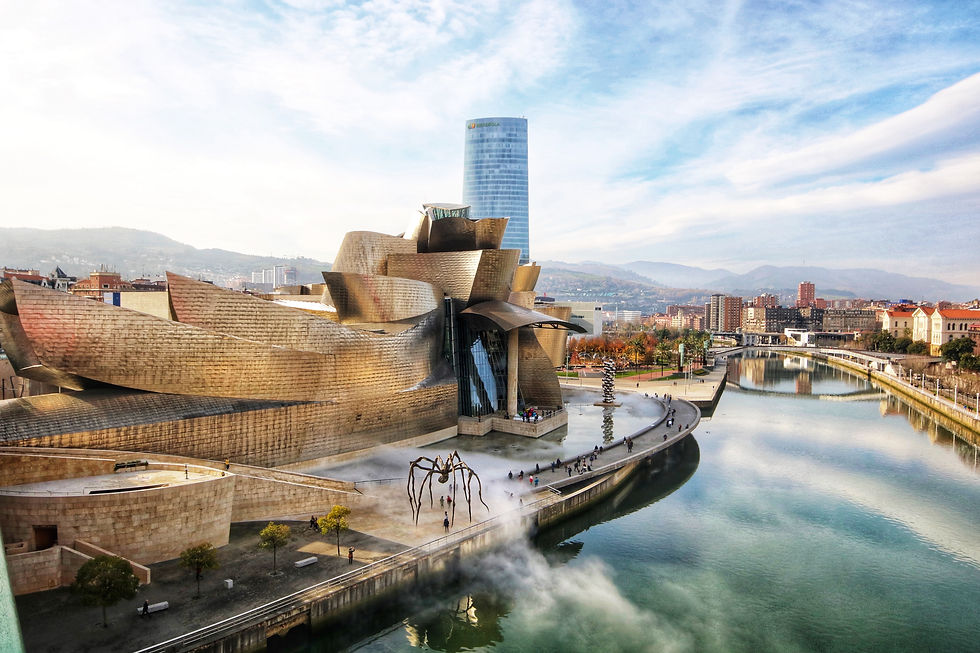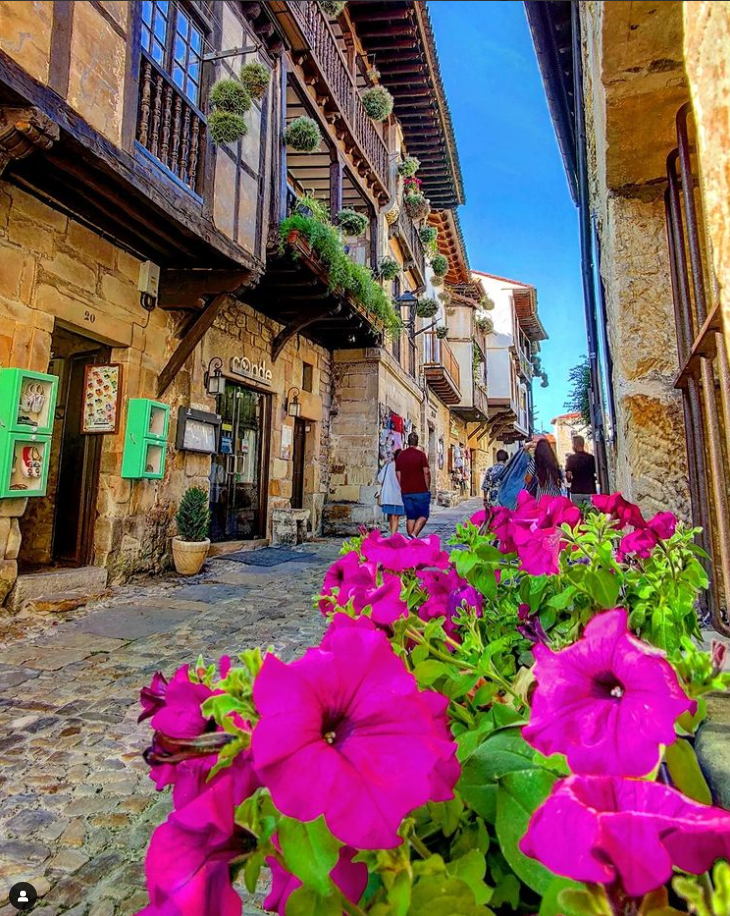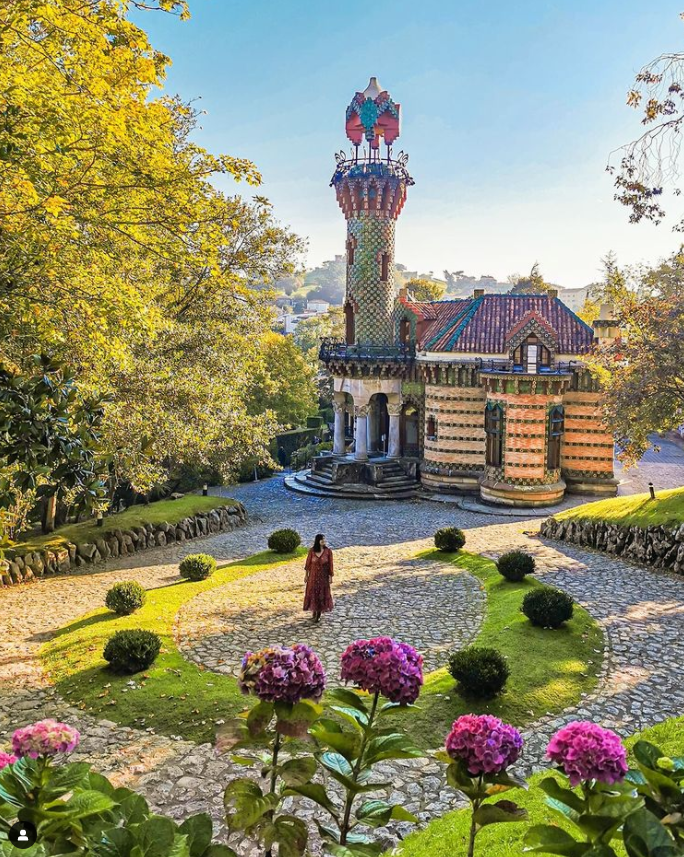Ultimate Northern Spain Road Trip | 1 Month Itinerary
- Pack Lense
- Jan 9, 2022
- 8 min read
Updated: May 19, 2023
Why Choose Northern Spain as Your Next Vacation Spot?
Northern Spain is a region of Spain that encompasses the autonomous communities of Asturias, Cantabria, and the Basque Country. It's a perfect choice for travelers looking for an authentic and untouched experience.
The Northern Spanish coastlines are home to some of the most beautiful beaches in the world. They are also known for their seafood cuisine, Medieval architecture, and local festivals.
Northern Spain is a region of Spain. It includes the provinces of Cantabria, Asturias, and the Basque Country.
How to Get There and Around Northern Spain
Spain has a rich history and culture which is easily accessible to visitors. Northern Spain is especially dramatic with its lush landscape, historic towns, and breathtaking coastlines.
The North of Spain consists of two provinces: Asturias and Cantabria. The two provinces are separated by the Picos de Europa National Park, which includes the mountains of Covadonga which are sacred to Christians because they are traditionally considered to be the birthplace of Saint James.
What You Should Bring with You to Northern Spain for a Great Rental Car Experience
The best way to experience Northern Spain is by renting a car.
However, it can be difficult to know what car to rent. Here are some tips on the best cars for renting in northern Spain.
There are many things you should bring with you when renting a car in Northern Spain- clothing, items for your day-to-day life, and other necessities. You may also want to bring any special equipment or devices that are necessary for your stay in northern spain.
The Ultimate Northern Spain and Coast Road Trip - 1 month or more!
(also known as Donostia in it’s Basque form)
If you're looking for a holiday destination that's off the beaten path, San Sebastian may be the perfect place to experience some of Spain’s most celebrated food, drink and culture.
San Sebastian is a special place where you can enjoy life in a relaxed way. With plenty of outdoor activities available, there is never a dull moment in this city of vibrant nightlife and delicious cuisine.
The city of San Sebastian offers many great attractions such as the magnificent San Telmo Museum and Plaza De La Consitucion. These popular tourist spots are just some examples when it comes to the things that you can do when visiting this enchanting town. That said, the number one place to go is San Sebastian’s main beach, Playa de La Concha. This beautiful beach curves gently along a sheltered waterfront.
Enjoy a delicious lunch at one of the many waterfront restaurants along Paseo de la Concha where you’ll have amazing views of the ocean, and be surprised to find that the four-course meal won’t break your bank.
Bilbao
Home of the Guggenheim Museum
Bilbao is the third largest city in Spain and is also one of the most flourishing tourist destinations in Europe. The city offers a lot to visitors, for example, it is the birthplace of famous architect Antoni Gaudí. Visitors can enjoy the different architectural styles that are present throughout the city.
There are many places to visit in Bilbao, Spain, but some of them include:
The Guggenheim Museum, Bilbao, Spain that was designed by Frank Gehry is one of the more iconic buildings in the world. This building is a must-see for any architecture aficionado. The museum has more than just an exterior of all stainless steel clinging to a disused power station. There are also 12 acres of land which have been turned into a lush garden.
The Plaza Nueva, a square in Bilbao, has a statue of King Felipe III and was built in 1619 by Fernando de Casas Novoa. The square is also home to the church of San Nicolás, which is the only church in the city with an octagonal bell tower.
Casco Viejo is one of the most beautiful and architecturally unique neighborhoods in Bilbao. This district is home to the old city, which is a UNESCO World Heritage Site and comprises a number of medieval buildings, narrow streets and craft shops.
Castro Urdiales is a small fishing village in the autonomous region of Cantabria, Spain. The town is set on a hillside overlooking the Bay of Biscay.
The town was founded by Romans as Castra Urdiale and was an important port for trade with the Americas during the Middle Ages. In recent years, Castro has gained popularity as a tourist destination because of its sandy beach and its architecture.
The central town area has well-known, traditional houses with wooden rows of balconies that date back to the Middle Ages. It received recognition as a Historic Site in 1978. Its main attractions, from different time periods and styles, contrast with the village's seafaring atmosphere. The old village is comprised of narrow streets that are great for walking around.
Santa Maria Church is one of the oldest buildings in Castro and is an example of Cantabria's Gothic architecture. It was built between 13-15th centuries. The castle-lighthouse, meanwhile, was built in 1872 and since then has been seen as one of the most representative views in town.
The town also has some cave paintings worth seeing, there's one in particular which dates back to the Upper Paleolithic period. It contains pictures of deer, horses & goats for example. Equally worth mentioning is the Roman archaeological site of Flavióbriga, which occupies the entire subsoil of the current city, at a depth of around 2 meters. Learn more about Castro Urdiales >
Santillana del Mar
Santillana del Mar is on the northern coast of Cantabria, Spain. It is an old fishing village that has attracted many visitors in recent years for its beaches and architecture. It has some great restaurants on the beach, which are good for having some tapas on these hot summer days.
The town is very small but it does have some things to do like exploring the old architecture and learning about their fishing history. There are also plenty of places to eat, drink, and shop. You can't leave Santillana without tasting their local dish - mariscos de Santillana!
Car restrictions have been in place for a long time, and they've been revised over the years. Nowadays you can't bring vehicles into the city center unless you either live or are staying at one of the hotels with parking garages. Other hotel guests may drive to unload luggage and must then return to the car park at the town entrance.
Comillas
Home of Art Nouveau buildings
Comillas is a popular coastal destination with many beaches to visit and architecture to admire. If you want to have a nice break from work and go on a holiday where you do not need to worry about anything, this is your place!
It has some of the best examples of Art Nouveau, such as Sobrellano Palace Chapel and the Pantheon. Not to mention the Pontifical University and El Capricho by Catalan architect Antoni Gaudi.
It has a beautiful beach which attracts thousands of tourists every summer. Visitors might also enjoy visiting the Plaza del Corro square next to the church.
Oviedo
In the western part of Asturias, Oviedo is a medieval town with a moorish flavor. It has a population of more than 100,000 and is also a provincial capital.
Oviedo's historic center is on the hillside and it has been declared a UNESCO World Heritage Site. There are some neighborhoods that offer breathtaking views of the city.
The Cathedral of San Salvador, which dates back to 1090, is one of the places worth visiting in Oviedo. In this cathedral you can see paintings from around 1440 depicting the life of Jesus Christ. The Oviedo Castle or Alcazar de los Reyes Cristianos where King Alfonso II El Benigno was born is another thing to see in this picturesque town.
Ribadeo
Come for the Seafood, stay for the Coastline
Ribadeo is a small town in Galicia, Spain. It's the perfect destination to visit if you want to take an exciting road trip across Europe. The best way to explore the city is by foot because it has a compact historic center that holds all of its charm.
It's also a good idea to visit As Catedrais, one of the most beautiful stretches of sand on the Galician coastline. The rocks that form natural arches resemble a cathedral for some magical landscape and change with the tides.
Ribadeo offers plenty of things to do in the daytime and in the evening for everyone's taste. There is nothing more gratifying than to delight at the seafood taken straight from the estuary, such as cockles, clams and oysters, which, along with salmon, trout and eels from the Eo, are the star ingredients of the local cuisine.
Santiago de Compostela
Santiago de Compostela (Spanish: Santiago de Compostela; Galician: Santiago de Compostela; Occitan: Sant Chagal) is the capital of the autonomous community of Galicia in northwestern Spain.
The city's population is roughly 87,730 and covers an area of 128 km². Santiago is located approximately 170 km northwest of the Spanish capital, Madrid, and some 40 km west of Portugal's border with Galicia making it a brilliant last stop of the coastal portion of your trip.
Santiago is a popular tourist destination for travelers who are looking to explore the historic buildings and monuments, vibrant culture, nightlife and shopping facilities. Pilgrims from all over the world have traveled to Santiago since the 10th century to atone for their sins and visit the tomb of St James, allegedly buried in the Cathedral of Santiago de Compostela. Santiago also has many outdoor activities available to explore with the family such as hiking, mountain biking, swimming in one of many natural pools or heading down to the beach.
Make sure you check out the Praza de Abastos (City Market). This is the typical Galician market and one of the biggest in Spain. It’s the perfect place to buy some fresh seafood, vegetables, and meat Galicia is known for “Pulpo” or cooked octopus. Fish and seafood have always been a part of the culinary scene. Nowadays there are a lot of restaurants available to choose from that offer tasty fish and seafood dishes at affordable prices.
León
León is a lovely city in the North of Spain with plenty to offer visitors. It has a rich history and it is surrounded by an amazing landscape. The city’s most iconic structure is the cathedral, which is in the center of the old town but there are many more historical buildings to discover, including the Basílica de San Isidoro or the striking Casa Botines designed by Gaudí.
Barrio Húmedo is a vibrant neighbourhood in the city of Leon, Spain. The area is lively at night as locals head to tapas bars for drinks and food. The city of Leon welcomes hundreds of pilgrims each year, including those on the Camino de Santiago. And it's not the only destinations for tourists to see - Ponferrada & Astorga are easy day trips away.
Burgos
Burgos is a city in northern Spain. It is part of the Autonomous Community of Castile and León. Burgos has been a strategic crossroads for centuries, which has made it one of the most important cities in Northern Spain. As a result, it has a rich architectural patrimony with buildings from various styles and periods including Christian churches, synagogues, mosques and Temples from the era of Muslim rule.
The gastronomy of Burgos is known as Burgalese cuisine. The traditional dish for this region is rocío de burgos, which consists of snails without shells cooked with bacon and parsley in olive oil over low heat for about an hour.
Discover your own Secret Destination in Northern Spain
And so ends our Ultimate Road trip itinerary of Northern Spain but don’t let this list limit you. Spend some time discovering all the amazing towns and destinations between each of the above gorgeous locations.





















